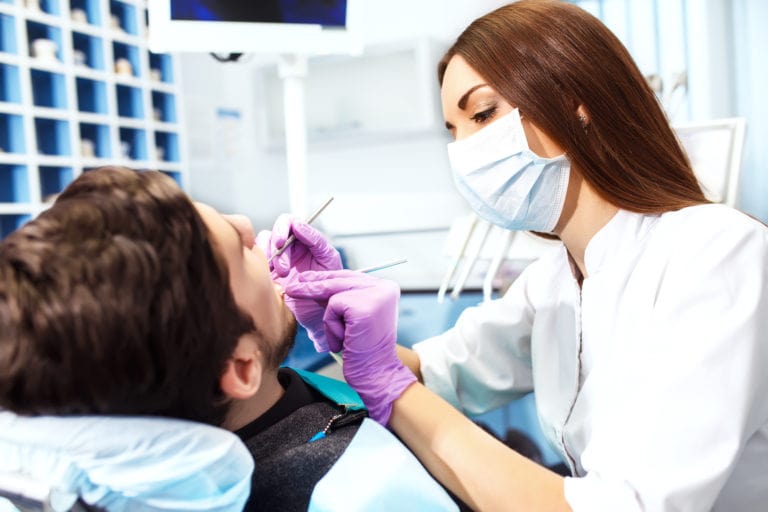Cavity Fillings - not if we can help it!
Does getting a cavity filled hurt? - It’s a question we are used to receiving at Chester County Family Dentistry. While Dr. David Montgomery and Dr. Ryan Dunn do everything possible to encourage patients (of all ages) to practice best oral health at home, sometimes cavities simply happen. And when they do, the entire CCFD team is dedicated to making the cavity-filling process as pain-free and stress-free as possible.
Get StartedA Closer Look at What Happens When You Get a Tooth Filled
When a cavity forms due to plaque buildup, your dentist needs to remove the tooth decay. This is done by using a dental drill that carefully rids the tooth of damage. Then, your dentist uses a composite resin, filling the space, and protecting the tooth from further damage. Although you may have heard of amalgam fillings and gold fillings, at CCFD we use a safe composite material for fillings (which also more closely resembles your natural tooth color).
One of the first steps in preparing a cavity to be filled is the application of a local anesthetic. This helps numb the gums and areas of the mouth being worked on.
Once a local anesthetic is administered, your dentist uses lidocaine anesthetic to ensure that your gums and designated areas of the mouth remain numb and pain-free throughout the cavity-filling procedure.
As part of our commitment to our patients’ safety and comfort, we also offer nitrous oxide. This colorless, odorless (and sometimes described as sweet-smelling) inorganic gas helps patients with dental anxiety to feel more comfortable and relaxed during their dental treatment.
Dr. Montgomery and Dr. Dunn will talk with you about how to best keep you comfortable prior to beginning your procedure.
What Happens After Dental Filling Treatment?
Although you may experience some sensitivity and “tingling” after your cavity is filled, this typically fades within a few days. Your dentist may recommend taking over-the-counter pain relievers to help reduce pain and soreness immediately following your filling treatment.
Many people are curious as to whether they can eat and drink after a dental filling has been placed. Since composite fillings harden quickly, your dentist may only restrict eating and drinking for an hour or two to allow the anesthesia to wear off. People have been known to unintentionally bite their tongue or cheek trying to chew too soon!
It’s also important to avoid sugary types of foods and drinks (like candy and soda). In addition to inviting more bacteria and plaque, sugar can increase the feeling of sensitivity in your teeth and gums.
Fending Off Future Cavities
Although getting a cavity filled isn’t typically painful during the procedure, people most likely would rather avoid having to go through the process. Sometimes, even despite our best oral care efforts, cavities still happen. But, keeping your routine dental checkups and cleanings, combined with comprehensive home dental health practices (brushing and flossing regularly), will help prevent cavities from developing.
If you have a cavity that needs to be filled, book an appointment today!
